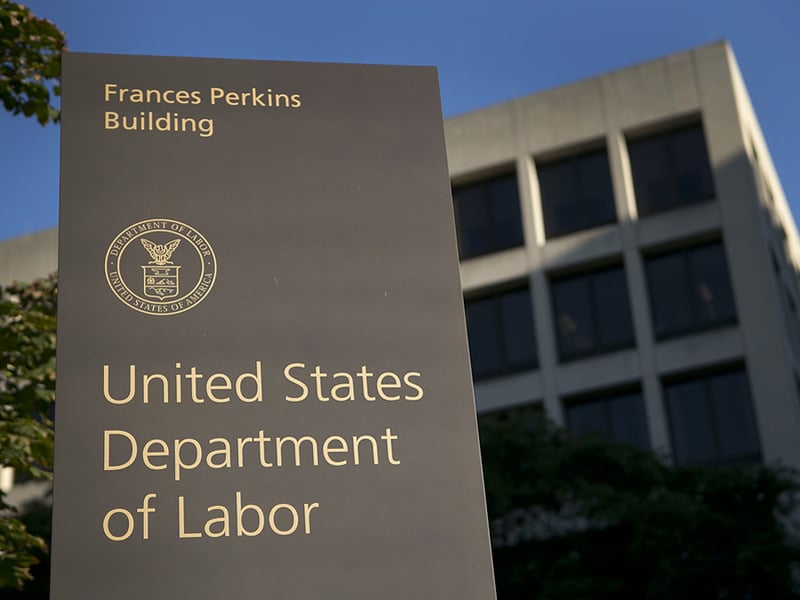The Labor Department released the final version of its fiduciary rule last week, bringing about major structural changes for how investment advice is delivered in retirement accounts. Yet arguably the most important and challenging step in the process — enforcement of the new rule — is just beginning.
The enforcement impact will be most pronounced in the retail market, experts said, because individual retirement account owners will essentially become the army through which the Department of Labor wields indirect enforcement influence.
“The DOL is shifting the enforcement burden from the government to the individual,” said Robin Solomon, partner in law firm Ivins, Phillips & Barker's employee benefits practice.
(More: Coverage of the DOL rule from every angle)
The Labor Department isn't the government agency with enforcement jurisdiction over IRAs. That responsibility falls to the Internal Revenue Service, which enforces prohibited transactions on the part of advisers through excise taxes.
However, the IRS “has not been particularly interested or vigilant in enforcement,” according to Daniel Bernstein, chief compliance counsel at MarketCounsel, a regulatory compliance consulting firm. Even if the agency were vigilant, the IRS can't easily enforce prohibited transactions currently with regard to brokers, who aren't fiduciaries and therefore wouldn't be subject to the rules if they were to give conflicted investment advice, Mr. Bernstein said.
To step up oversight of investment advice in the IRA market, the DOL came up with the best interest contract exemption. The BICE is a portion of the fiduciary rule that allows for certain transactions that would otherwise be prohibited — such as receipt of variable compensation (commissions, 12b-1 fees) — as long as parties enter into a contract stating an adviser is a fiduciary acting in a client's best interest, and satisfy other requirements.
“The DOL, which otherwise doesn't have enforcement authority for IRAs, has thrown a tool to clients, knowing the IRS would otherwise struggle with that,” Mr. Bernstein said.
At present, investors can sue brokers or go to arbitration if they feel they've been wronged. But once the fiduciary rule is phased in, the BICE will give IRA holders a stronger case against brokers in a court or arbitration setting than had been the case previously, according to Barbara Roper, director of investor protection at the Consumer Federation of America.
Until the Labor Department's fiduciary rule, proving a broker was a fiduciary with an obligation to act in a client's best interest was difficult — brokers could easily skirt taking on fiduciary status by claiming their advice wasn't continuous or didn't serve as the primary basis for an investor's ultimate investment decision, Ms. Roper said.
Now, if investors believe they have a claim against a broker for not acting in their best interest, “the question of whether they're a fiduciary or not is now clear,” making it easier to prove in arbitration or court and granting investors a stronger claim, she said.
Firms can still force investors into mandatory arbitration, as they often do currently, rather than have a dispute go to court. Most cases will likely still go to arbitration, Ms. Roper said.
However, investors will always have the right to bring class-action litigation against a firm.
“This is a really big deal,” according to Louis Harvey, president and chief executive of DALBAR Inc., a market research firm. “It becomes heavy bucks” for firms to settle these types of cases, potentially in the billions of dollars, Mr. Harvey said.
Michelle Ong, a spokeswoman for the the Financial Industry Regulatory Authority Inc., said in a statement that the brokerage industry regulator was reviewing the Department of Labor's rule and how it applies to the broker-dealer business model and aligns with existing Finra rules.
Knut Rostad, president of the Institute for the Fiduciary Standard, is skeptical of the consumer protections granted by the terms of the BICE, saying there's “enormous faith” being placed in the private right of action granted by the BICE.
There isn't a consensus definition of what a “best interest” standard means in concrete terms — it's a principle that can be broadly defined,
much like the principle of “reasonable compensation” — and the courts will ultimately interpret what that standard of care is, Mr. Rostad said.
“I don't know that it's true to assume there will be a definition that's going to be really beneficial to investors,” Mr. Rostad said.
“It's an improvement over the old suitability standard, but we don't know how the best interest standard will be interpreted by the courts,” according to Ms. Solomon.
The 401(k) market is already well-versed in class-action litigation — suing for fiduciary breach under ERISA
has been one of the main methods of recourse for plan participants over the past decade. Further, the DOL has the authority to file civil actions against advisers for fiduciary breach in the ERISA-plan market, and the IRS is able to assess an excise tax on the adviser.
From an enforcement standpoint, not much will change in the 401(k) market as a result of the fiduciary rule. However, there will be more advisers falling under a fiduciary standard of care, and therefore more intermediaries to oversee on the part of the DOL and the IRS, according to Ms. Solomon.
Mike Trupo, spokesman for the DOL, said in a statement the agency will be “very focused on compliance assistance as the rule goes into effect.” Highlighting this point, the
fiduciary rule's preamble says the DOL expects to emphasize compliance assistance over using investigations and enforcement actions as a primary implementation tool” during the transition period to the new regulatory regime.
Ultimately, experts believe enforcement will occur naturally due solely to the threat of enforcement. The DOL has one major trump card that gives the agency de-facto enforcement over the retail market in a big way — being able to rescind a firm's ability to use the BICE if firms don't put adequate policies and procedures in place to mitigate conflicts of interest, Ms. Roper said.







